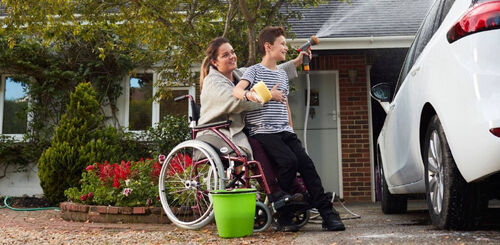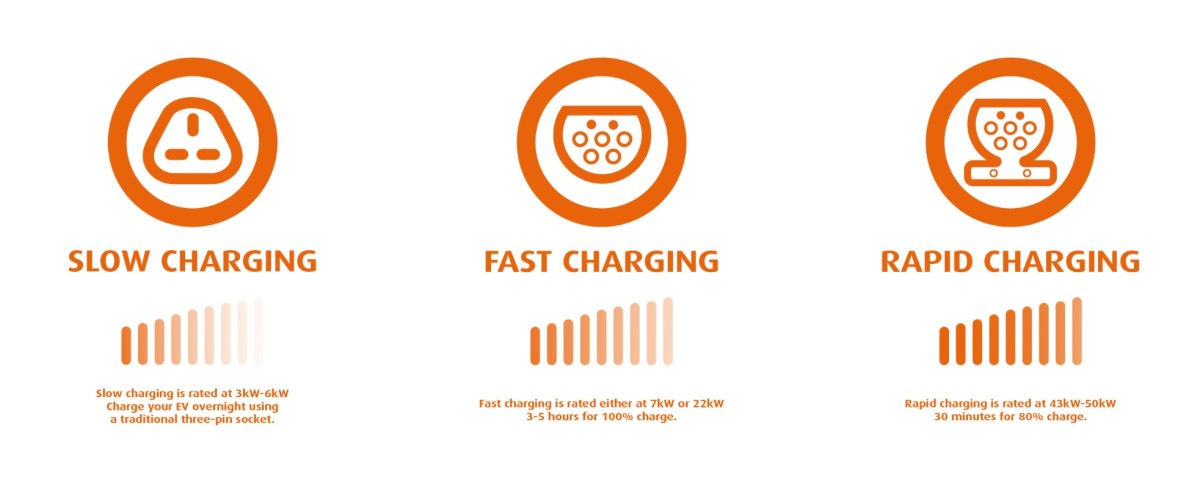

Enjoy Everyday Freedom
The Motability Scheme
The Motability Scheme is a charity that enables disabled people, their families, and their carers to lease a new car, using their disability benefit.
At Griffin Mill, we have a dedicated and experienced team of Motability specialists to guide you through your options and help you find the perfect car for your individual needs.
All our dealerships have wheelchair access and offer disabled parking spaces. We represent 7 major vehicle manufacturers, so we can offer you a wide range of Motability cars to choose from. And if you choose your new mobility car from Griffin Mill, you’ll also benefit from our exceptional aftersales service.
Browse our Motability pages to find out more about the Motability Scheme, if you’re eligible to join the scheme, or view our most frequently asked questions. You can also browse the Motability cars that we currently have available.
For more information, please contact us on 01443 842 216 to speak to one of our Motability-trained specialists.
FAQs
Many of the latest electric vehicles can travel over 200 miles on a single charge. Different types of EV’s have different maximum ranges. Factors such as type of terrain, climate and speed can all impact the distance and EV can travel on a single charge.
Electric vehicles are far cheaper to maintain and run than traditional cars. Because there are fewer moving parts there is reduced wear and tear on the car and engine. By switching to an electric vehicle, you could save an estimated 20-30% on service and maintenance costs compared to a petrol or diesel equivalent.
You pay zero tax on fully electric vehicles. Fully electric cars and vans have no harmful emissions therefore they are fully exempt from the new car tax. Plug-in hybrids pay less than petrol and diesel cars too. In addition to tax savings, electric owners are also exempt from most congestion charges and low emission zone taxes in big cities.
Electric cars can accelerate much faster than petrol or diesel cars. The instant torque from an electric motor means an electric car can accelerate quickly, especially across the 0-30mph range. That makes electric cars quick in town, and means you can “get away from the lights” as quickly as you could in a sports car. Even the cheapest, slowest electric cars are quicker than most petrol or diesel cars.
Electric cars are as safe as in water as petrol or diesel cars. The amount of water a car can drive through is called it’s “wading depth”. The wading depth of an electric car is normally the same as its petrol or diesel equivalent.
The cost of owning a car is affected by its residual value (how much it’s worth) when you sell it. Since the value of used electric cars is stabilising, while that of popular models is going up. It’s predicted that if you buy an electric car at today's prices, by the time they're five years old, they’ll be worth more than their petrol or diesel equivalents.
Electric cars are safer than their conventional counterparts. With fewer moving components and the absence of flammable fuel, electric cars are less prone to the common safety concerns of conventional vehicles. Electric cars are held to the same safety standards as conventional models, and have to pass the same tests. In fact, in the latest Euro NCAP testing, 14 out of 17 electric cars achieved the maximum five-star rating.
Electric vehicles produce significantly lower levels of harmful greenhouse emissions. Some electric vehicles have zero tailpipe emissions while others have ultra-low emissions of below 50g/kg CO2. By emitting less carbon into the atmosphere, electric drivers are helping improve local air quality.
Many electric vehicles have an eco-mode which is designed to conserve as much battery power as possible. Driving more slowly and using less climate control within the vehicle can also help improve battery life.
No, most of the latest electric vehicles can travel over 200 miles on a single charge which means you can handle the average commute in the UK (about 15 miles) comfortably. Most EV owners top up their car’s battery overnight at home whenever needed using a home charging unit.
Yes, of course. Our experienced Vehicle Technicians are fully qualified to work on all types of electric vehicles. For a new car or used car that is under a manufacturers’ warranty, you should be aware that if you do not have it serviced at the main car dealership, you may void your warranty. If you miss a car service or take it to a non-approved garage, this could also make the warranty void.
If you do decide to sell your car on, you may find that it’s easier to sell a car with a service history from a main car dealership rather than a non-approved garage.
Griffin Mill also offer a service plan when purchasing a new electric car. This involves a one-off or monthly payment to cover the costs of scheduled services.
Yes, we have a large range of both electric and hybrid vehicles available on PCP, High Purchase (HP) and Contract Hire.
Yes, there is a choice of eco-friendly vehicles, including electric and hybrid cars available to lease on the Motability Scheme. Visit our Motability page to view the range of cars currently on the Motability scheme.
Charging
The range of connectors and devices can make charging your electric vehicle seem overwhelming but in reality, it is quite simple. Here at Griffin Mill, we’re untangling the myths behind electric car charging and we aim to equip you with the knowledge you need to make an informed decision when choosing your next electric vehicle.
Plug-in vehicle charging is dependent both on the technology built into the vehicle and into the charging infrastructure. When the charging capability of the vehicle is less than that of the charger, then the vehicle will charge only at the maximum speed allowed by the vehicle. When the charging capability of the vehicle is greater than that of the charger, then the vehicle will charge at the maximum rate allowed by the charger.
ChargePoint’s are primarily defined by the power (in kW) they can produce.
Below are the classifications of the different charging types and the times for a 100% charge of a typical EV:
• SLOW: 3kW 6-8 hours
• FAST: 7-22 kW 3-5 hours
• RAPID: 43kW-50kW 30 mins to 80%
SLOW CHARGING
Domestic charging uses a standard household 3 pin socket. This method of charging is slow and can take up to 22 hours from a typical domestic household and can be risky if the socket has not been properly checked. Therefore, we would always recommend that you have any socket you plan to charge from checked for suitability by a certified electrician.
FAST CHARGING
Accelerated charging, or fast charging was specifically designed for electric vehicles. It’s faster to charge than using a domestic plug. Home ChargePoint’s of up to 7kw can easily be supported in most domestic properties. Certified installers will install a separate fused supply so should there be any issues with the car, this would not impact the rest of the house. With power levels commonly at 7kW, your vehicle would fully charge in 7.5 hours. Some models will have this feature as part of a smartphone app.
RAPID CHARGING
Rapid charging uses direct currents to charge the battery quickly. They charge the first 80% as fast and efficiently as possible, usually within 40minutes, and then slow down charging for the final 20%.
You can find where rapid chargers are located using our Zap Map below.
Charging an EV can be much cheaper than filling up with petrol. You could charge a fully electric vehicle like the Nissan LEAF for around £2.35. This would give you a range of approximately 200 miles or 1.2p per mile. Driving the same distance in an equivalent petrol or diesel car would cost more than £20.
Many electric vehicles have an eco-mode which is designed to conserve as much battery power as possible. Driving more slowly and using less climate control within the vehicle can also help improve battery life. With the UK’s extensive network of charging infrastructure, you never have to worry about range as there will always be a charging point nearby.
There are over 42,000 public ChargePoint connectors at over 15,500 locations available in the UK. To find one near you, or plan your next long-distance trip, see Zap map’s interactive charging map.
You’ll be able to filter these results by charging type, availability, speed and more so you can always find the right station for your requirements.
The network of charging stations in the UK is growing extremely rapidly right now. There are already more electric charging points than there are fuel stations and the number is increasing all the time.
Brands









